Detail Overview of Class 12 Fantasy Exercise
The Fantasy Exercise includes questions about the central character, Harvey Maxwell, and his ironic forgetfulness. By solving the exercise, students grasp the deeper meanings behind the story’s humor.
Grammar sections also test understanding of sentence structure, passive voice, and transition words.
In conclusion, practicing the Fantasy content will strengthen your command of English literature for the NEB final exam.
Chapter 16: Class 12 Fantasy Exercise
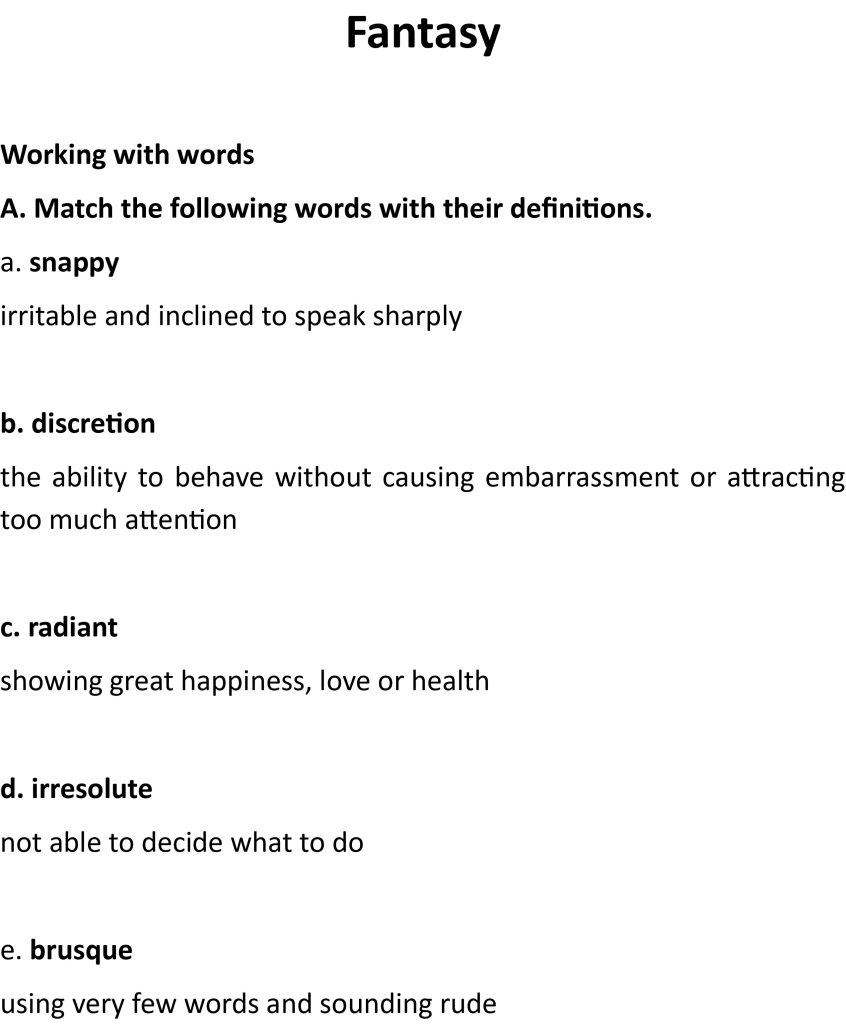
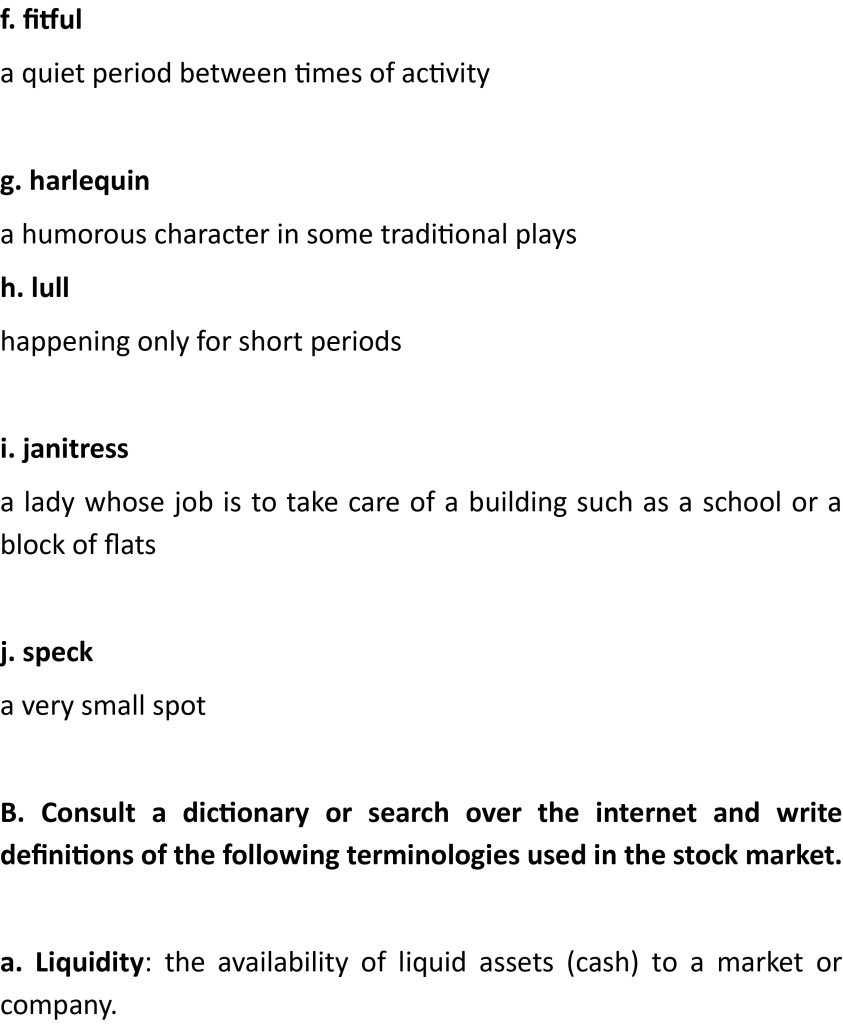
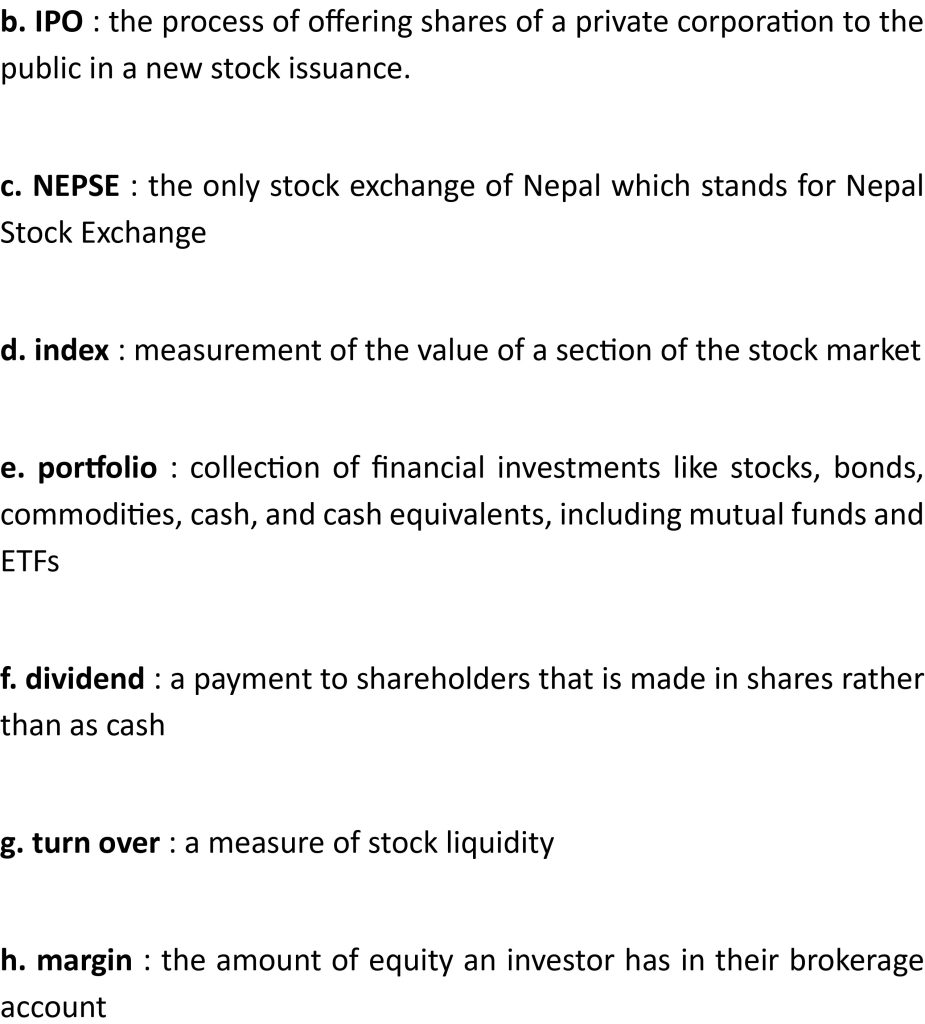
Continue reading with the NEB official English Guide App:

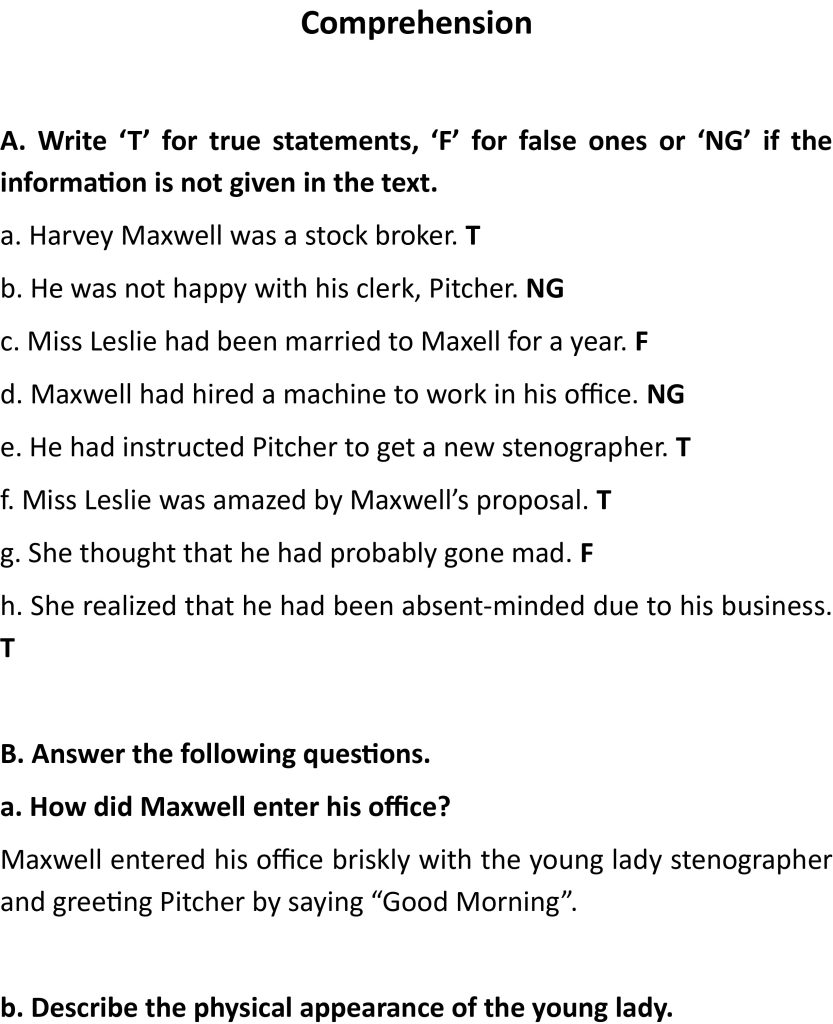
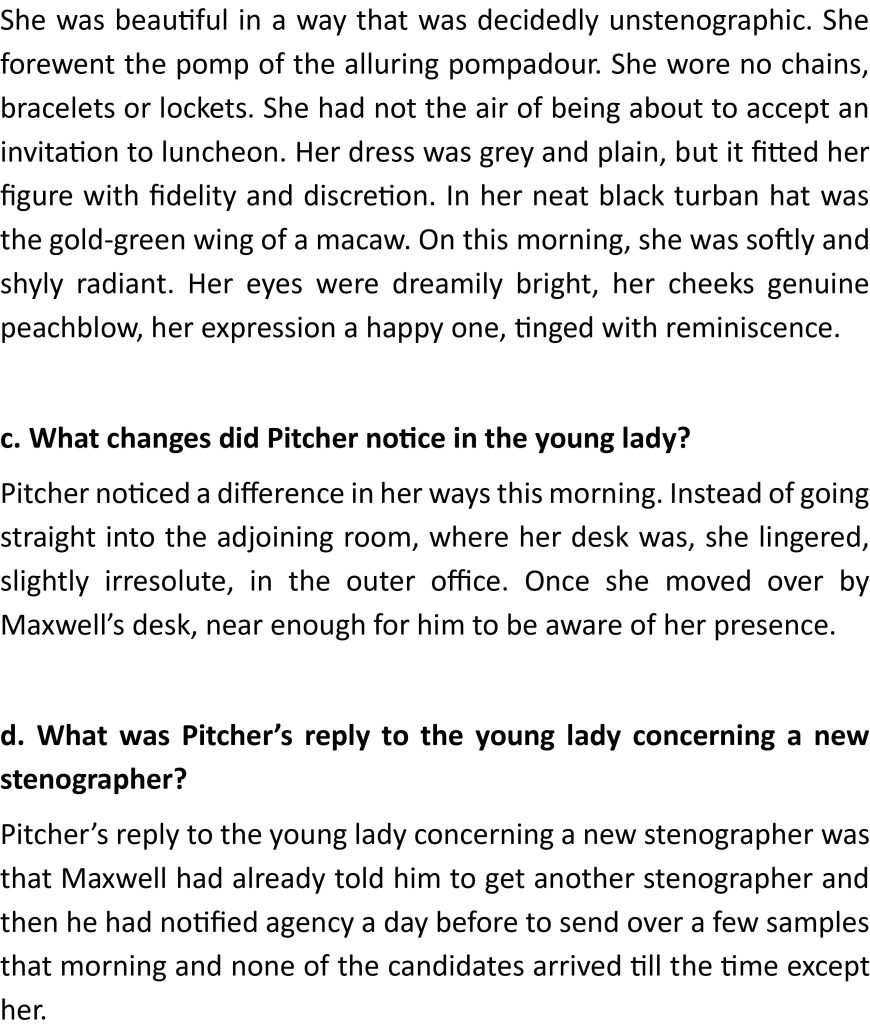
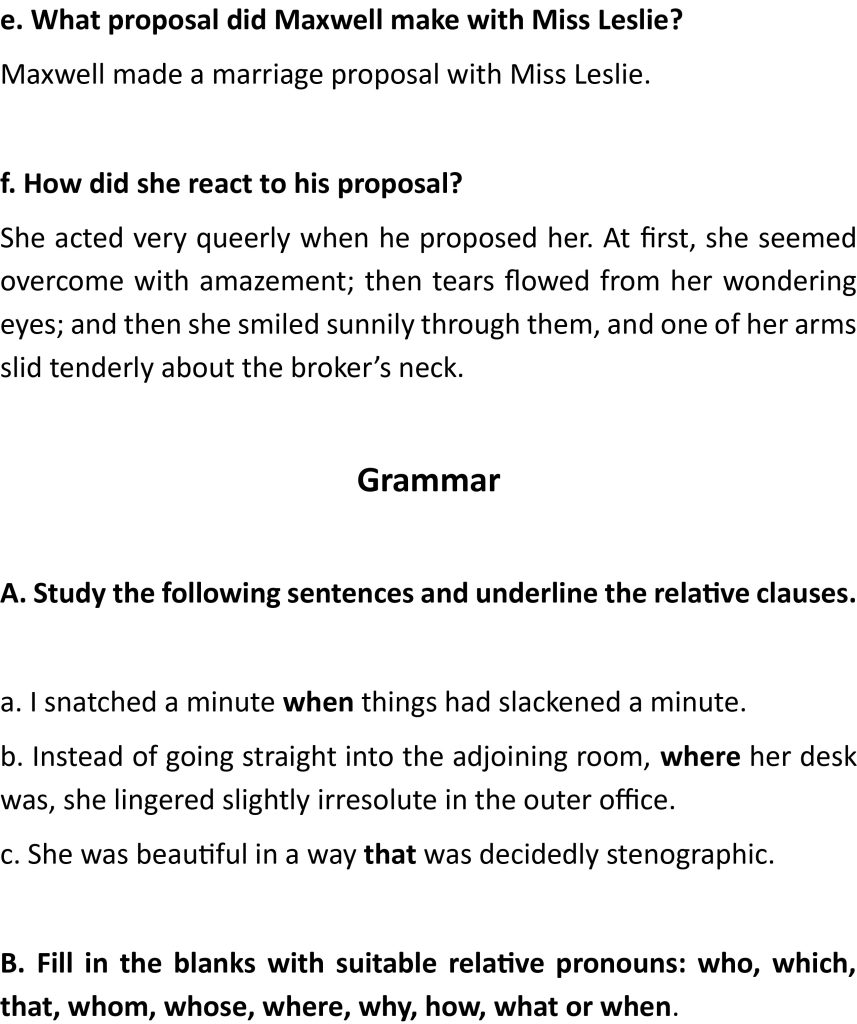

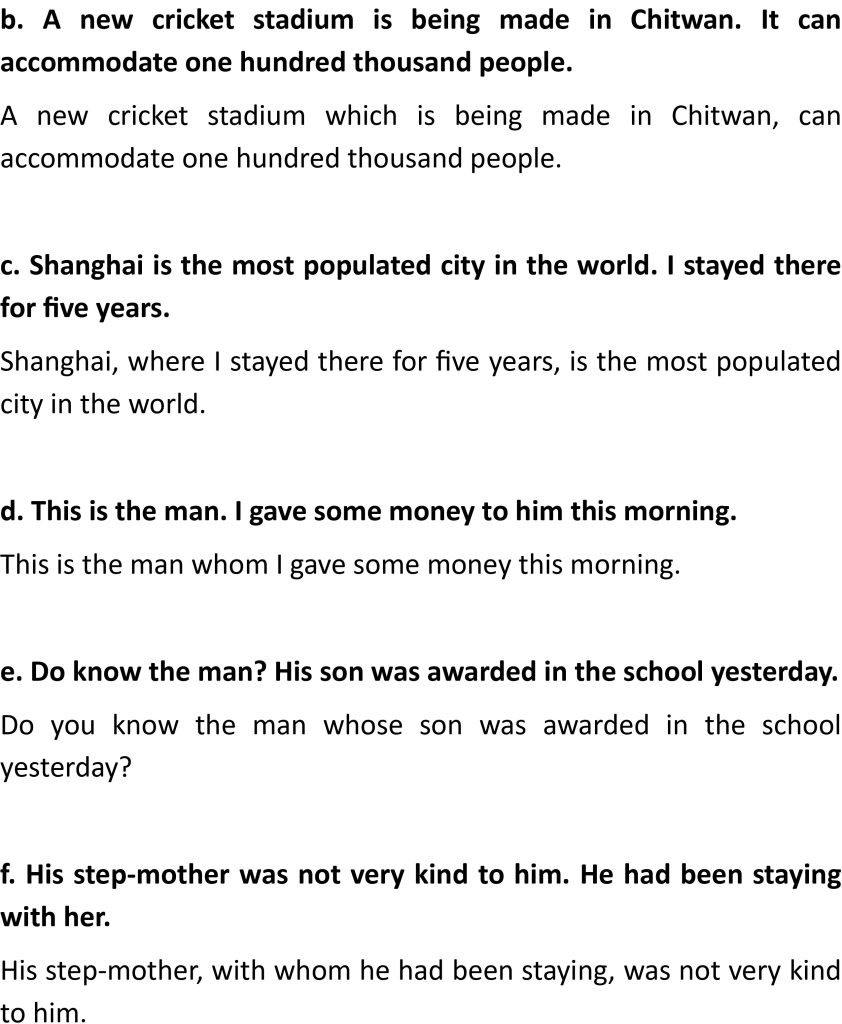

Summary of ‘fantasy class 12 exercise’
“Fantasy” is a humorous and ironic short story centered around a stockbroker, Harvey Maxwell, who becomes so engrossed in his business that he forgets he has recently married his stenographer, Miss Leslie. As the story unfolds, it portrays the chaotic environment of a stock exchange and emphasizes Maxwell’s absent-mindedness, which stems from the relentless pressure of his profession. Although he genuinely loves Miss Leslie, his obsession with work nearly overshadows his personal life. Eventually, the twist occurs when he unknowingly proposes marriage to his wife again, highlighting the comical extent of his forgetfulness. Through this scenario, the story explores themes such as love, memory, identity, and the effects of routine on human behavior. In the end, it serves as a witty commentary on how professional routines can blur the lines between personal and professional identities.
Key Takeaways
- The story is written by O. Henry, known for his surprise endings and ironic tone.
- It critiques the mechanization of modern life, especially in the business world.
- Harvey Maxwell represents a workaholic who loses track of personal milestones.
- Miss Leslie symbolizes emotional intelligence and subtle understanding.
- The narrative blends romance and satire, making the story engaging and thought-provoking.
- The stock exchange office serves as a backdrop of pressure and haste.
- The twist ending reflects O. Henry’s signature storytelling style.
- The story questions how professional stress can impact memory and relationships.
- It promotes the idea that human emotions shouldn’t be forgotten in the race of life.
- The language includes both technical (financial) and descriptive literary elements, making it suitable for language and literature analysis.
FAQ:
Who is the main character in the Class 12 English chapter “Fantasy”?
The main character is Harvey Maxwell, a stockbroker who is deeply absorbed in his business life.
What is the major theme of the chapter “Fantasy” in Class 12 English?
The major theme is the conflict between professional life and personal emotions, with a focus on memory, love, and irony.
What is ironic about Maxwell’s proposal in the story?
It is ironic that Maxwell proposes to Miss Leslie without realizing he has already married her, showing how consumed he is by work.
How is Miss Leslie portrayed in the chapter “Fantasy”?
She is portrayed as graceful, calm, and emotionally intelligent—offering a contrast to Maxwell’s mechanical behavior.
What literary device is prominent in the story “Fantasy”?
Irony is the central literary device, especially seen in the humorous misunderstanding that drives the plot.
Why is the story titled “Fantasy”?
The title “Fantasy” may reflect the absurdity of Maxwell’s disconnection from reality, treating personal life as a forgotten fantasy.
How does the chapter “Fantasy” reflect modern work culture?
It highlights how excessive focus on career and routine can lead to emotional neglect and memory lapses, a reality of modern work life.
What kind of ending does O. Henry use in this story?
The story uses a twist ending, typical of O. Henry’s works, surprising the reader when it is revealed the proposal was to his own wife.
How is humor used in the Class 12 English story “Fantasy”?
Humor arises from situational irony—especially the absurdity of proposing to someone you’re already married to.
What lesson can students take from the story “Fantasy” in Class 12 English?
The story teaches the importance of balancing work and personal relationships and reminds readers not to lose human touch in a busy world.
Leave a Reply